| | | | | | | Presented By Mizzen+Main | | | | Axios World | | By Dave Lawler ·Dec 09, 2021 | | Welcome back to Axios World. - Happy almost Friday. Today's edition (1,474 words, 5½ minutes) is focused on democracy.
⚡️ Situational awareness: Nicaragua broke off diplomatic relations with Taiwan in favor of China, leaving just 13 countries still recognizing the self-governing island. New arrival? Subscribe. | | | | | | 1 big thing: "Democracies vs. China" won't cut it | 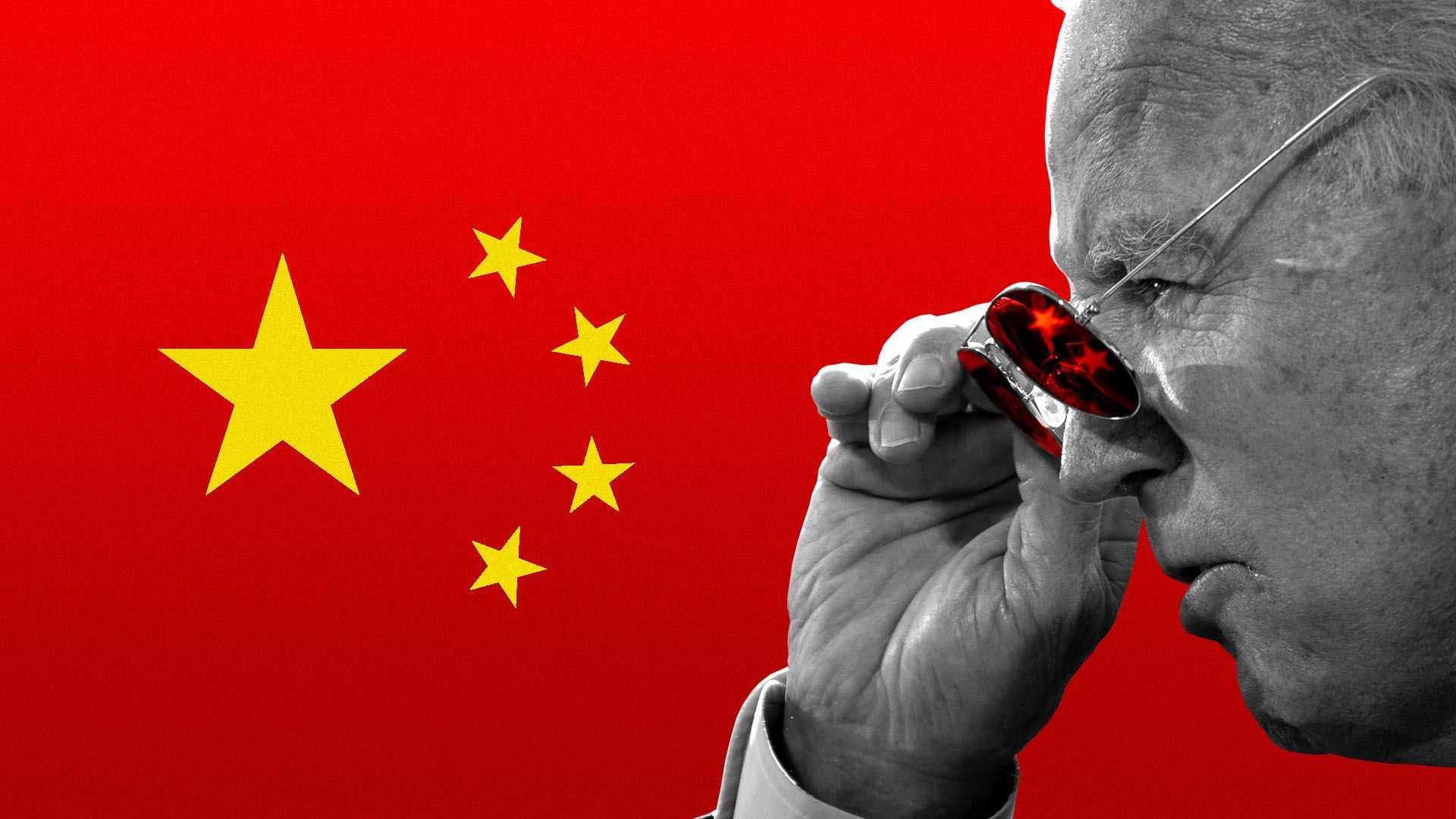 | | | Sarah Grillo/Axios. Photo: Drew Angerer/Getty Images | | | | President Biden has described the global competition between the U.S. and China as a battle of democracy vs. autocracy. The reality is often murkier. Why it matters: Addressing the Summit for Democracy today, Biden called the erosion of democracy around the world "the defining challenge of our time." But his democracy agenda is beginning to collide with his China strategy in uncomfortable ways. The big picture: The Biden administration has embraced Indian Prime Minister Narendra Modi as a crucial ally in countering China while tiptoeing around his government's human rights violations and democratic backsliding. - It's courting non-democracies like Vietnam and Thailand due to their strategic importance vis-à-vis China.
- And the administration's efforts to convince the kleptocratic leaders of Equatorial Guinea not to grant China a military foothold, as revealed in the WSJ, underscore the tension between Biden's desire to crack down on corrupt regimes and the need to keep them out of Beijing's orbit.
Reality check: "If we only dealt with perfect democracies, we couldn't even deal with ourselves," notes Lisa Curtis, who helped craft the Trump administration's China strategy and now heads the Indo-Pacific security program at the Center for a New American Security. - Biden has also had some success in syncing up with fellow democracies when it comes to China, particularly on human rights issues.
- Still, hopes that this week's summit might be a stepping stone toward an "alliance of democracies" may be tempered by the difficulties of determining who exactly would attend it.
This tension between interests and values in America's global partnerships is nothing new. - As the U.S. was pitching democracy to the world during the Cold War, some of its more reliable partners were autocrats. Even within NATO, not all of the original allies were democracies, notes Yale University historian John Lewis Gaddis. Indeed, the U.S. was building those alliances during the Jim Crow era at home.
- Gaddis contends that one lesson from the Cold War is that in its relationships with countries like Thailand — which Secretary of State Tony Blinken will visit next week, and where a military junta took power in 2014 — the U.S. priority should be the balance of power in Asia, rather than influencing domestic politics.
- "You're going to have to make compromises on principles to get to that point. That's what strategy is all about," Gaddis says.
Flashback: Biden aides contend they can do both at once. I asked Blinken's deputy, Wendy Sherman, earlier this year how she squared her outreach to Cambodia and Thailand (which she was visiting at the time) with Biden's democracy agenda. - "One has to raise it all," she said. "If I go to a country in which we have a security relationship, that's important, but it doesn't stop us from raising these human rights issues."
Zoom in: Curtis points to another country of major importance in the U.S.-China competition, both because of its location just off of India and because of China's growing investments and influence: Sri Lanka, where the ruling Rajapaksa brothers have been trampling democratic institutions. - That's one of many such cases where the U.S. will have to decide whether to court unsavory governments to compete for influence or to keep them at arm's length.
- "This is an example of how you weigh your policies and try to compete, to remain in the game but at the same time continue to stand up for your principles," Curtis said.
The bottom line: Biden sees defending democracy and outcompeting China as the central challenges of the 21st century, but they won't always be perfectly aligned. |     | | | | | | 2. Democracy summit kicks off |  | | | Photo: Nicholas Kamm/AFP via Getty | | | | Roughly half the world was invited to Biden's Summit for Democracy — including some strategically important countries with weak democracies (the Philippines, Pakistan), and excluding a few countries (Bolivia, Sierra Leone) that may have had a decent case for inclusion. Driving the news: The Chinese government objected loudly, particularly because Taiwan was invited. Beijing held an alternative summit, issued a joint op-ed with Russia denouncing Biden's "Cold-War mentality," and launched a PR campaign calling China "a democracy that works." - Pakistan turned down its invitation, a decision that was no doubt influenced by its close relationship with Beijing.
- Hungary, the only EU country excluded from the summit, tried unsuccessfully to prevent European Commission President Ursula von der Leyen from speaking.
State of play: Biden's campaign promise to hold the summit turned into a logistical headache for his administration, which has scrambled to assuage concerns about the guest list or claims the U.S. is in no position to lecture the world on democracy. - Biden himself began his address with an acknowledgment of the "ongoing struggle to live up to our highest ideals."
What's next: As the virtual summit continues tomorrow, Biden is expected to roll out new sanctions on individuals for undermining democracy and encourage other countries to follow suit. Worth noting: Global opposition leaders and activists have also been invited to speak. Those include Venezuela's Juan Guaidó, whose position as the country's opposition leader is in growing jeopardy. |     | | | | | | 3. Data du jour: What Biden is up against |  Data: Pew Research Center Spring 2021 Global Attitudes Survey; Chart: Baidi Wang/Axios Majorities across 17 democracies surveyed by Pew last March, including the U.S., believe the United States used to be a good role model for democracy but no longer is. |     | | | | | | A message from Mizzen+Main | | Comfort is calling you | | |  | | | | Lightweight, breathable, and moisture-wicking, Mizzen+Main shirts are bringing all-day comfort to menswear, including: - Dress, polo, and flannel shirts.
- Dress pants, joggers, and shorts.
Get $35 off these performance fabrics with flexible, modern tailoring. | | | | | | Bonus: Where in the world? | | Screenshot via Apple Maps Can you name this city, sometimes called the "Gateway to Europe," as it's the continent's largest seaport? Scroll to the bottom for the answer. |     | | | | | | 4. Inside Biden's call with Zelensky |  | | | President Biden speaks with Ukrainian President Zelensky as his top aides look on. Photo: Doug Mills/Pool/Getty Images | | | | Biden spoke for 90 minutes today with Ukrainian President Volodymyr Zelensky as he continued to brief European allies on Tuesday's call with Russia's Vladimir Putin. Driving the news: White House officials' briefing reports on the call rejected speculation that Biden would pressure Ukraine to cede territory to Russian-backed separatists in order to deter Putin from launching a large-scale invasion, Axios' Zach Basu reports. - Biden also stressed there would be "no decisions or discussions about Ukraine without Ukraine," according to a White House readout.
Behind the scenes: Biden reassured Zelensky during their call that Russia has no veto right over Ukraine's possible accession to NATO, an adviser to Zelensky told Axios. - Zelensky said that he was happy to enter discussions over the implementation of the 2014 Minsk Protocol, but that there could be no detailed negotiations without a genuine ceasefire and the restoration of Ukraine's sovereignty, the adviser said.
- Moving forward, Zelensky would like to see Biden implement sanctions now that could be rolled back if Russia de-escalates, and fulfill remaining requests for military equipment that were submitted based on U.S. intelligence of the current Russian threat, according to the adviser.
- Both the U.S. and Ukrainian sides characterized the call as open, warm and friendly.
Biden also held a call with the leaders of nine eastern flank NATO allies — Bulgaria, Czech Republic, Estonia, Hungary, Latvia, Lithuania, Poland, Romania, Slovakia — in order to reassure them of the U.S. commitment to collective defense, per a senior administration official. |     | | | | | | 5. Global policy news roundup | 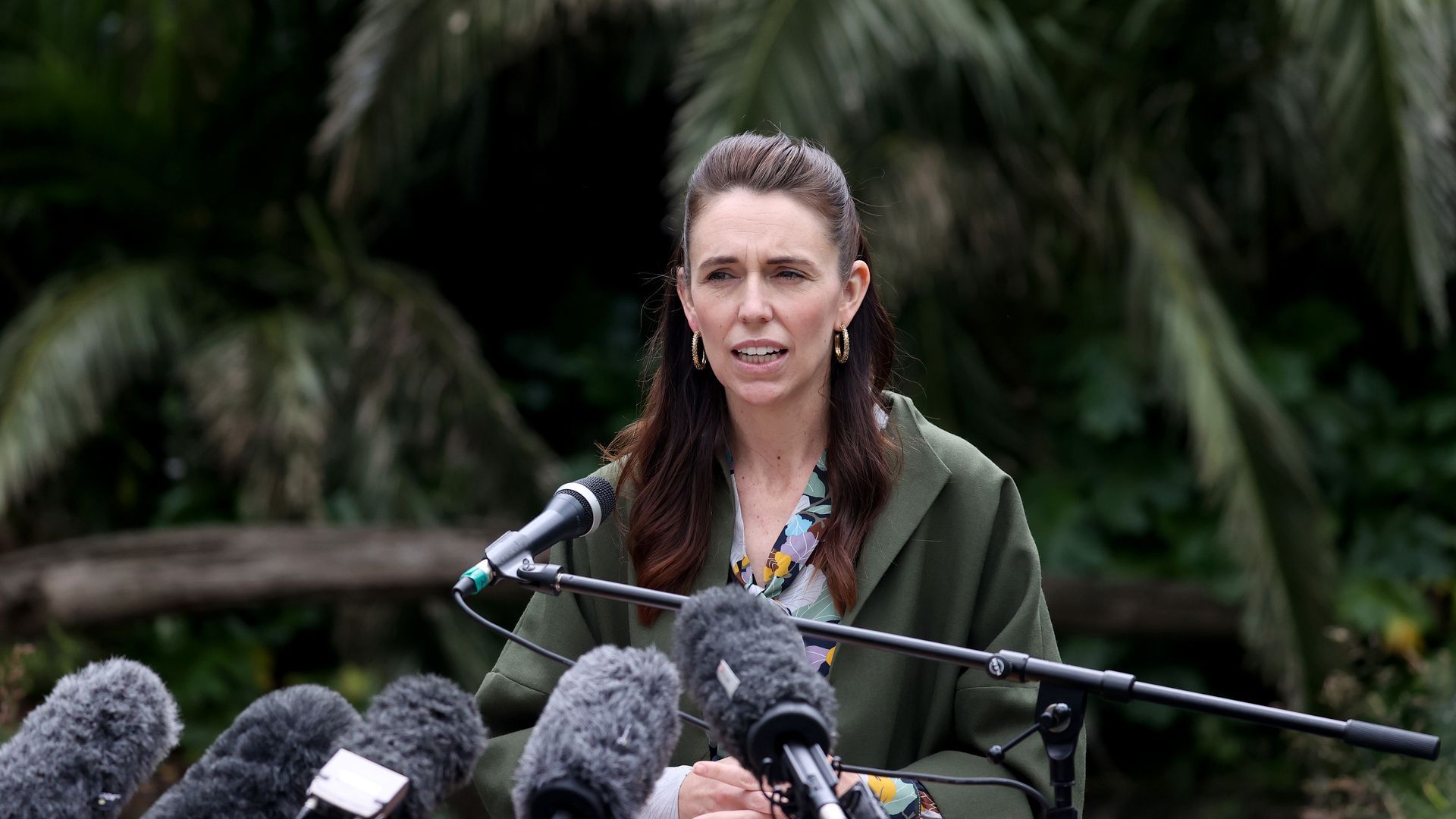 | | | New Zealand Prime Minister Jacinda Ardern. Photo: Phil Walter/Getty Images | | | | 1. New Zealand plans to ban young people from smoking — even as they age, Axios' Rebecca Falconer reports. - Why it matters: "People aged 14 when the law comes into effect will never be able to legally purchase tobacco," Associate Health Minister Ayesha Verrall said in a statement.
2. Chile's Congress overwhelmingly passed a bill Tuesday to legalize same-sex marriage and allow same-sex couples to adopt children. 3. Canada approved legislation Wednesday banning LGBTQ conversion therapy throughout the country. 4. Singapore is ending free health care for COVID-19 patients who aren't vaccinated. |     | | | | | | 6. The "green colonialism" debate | 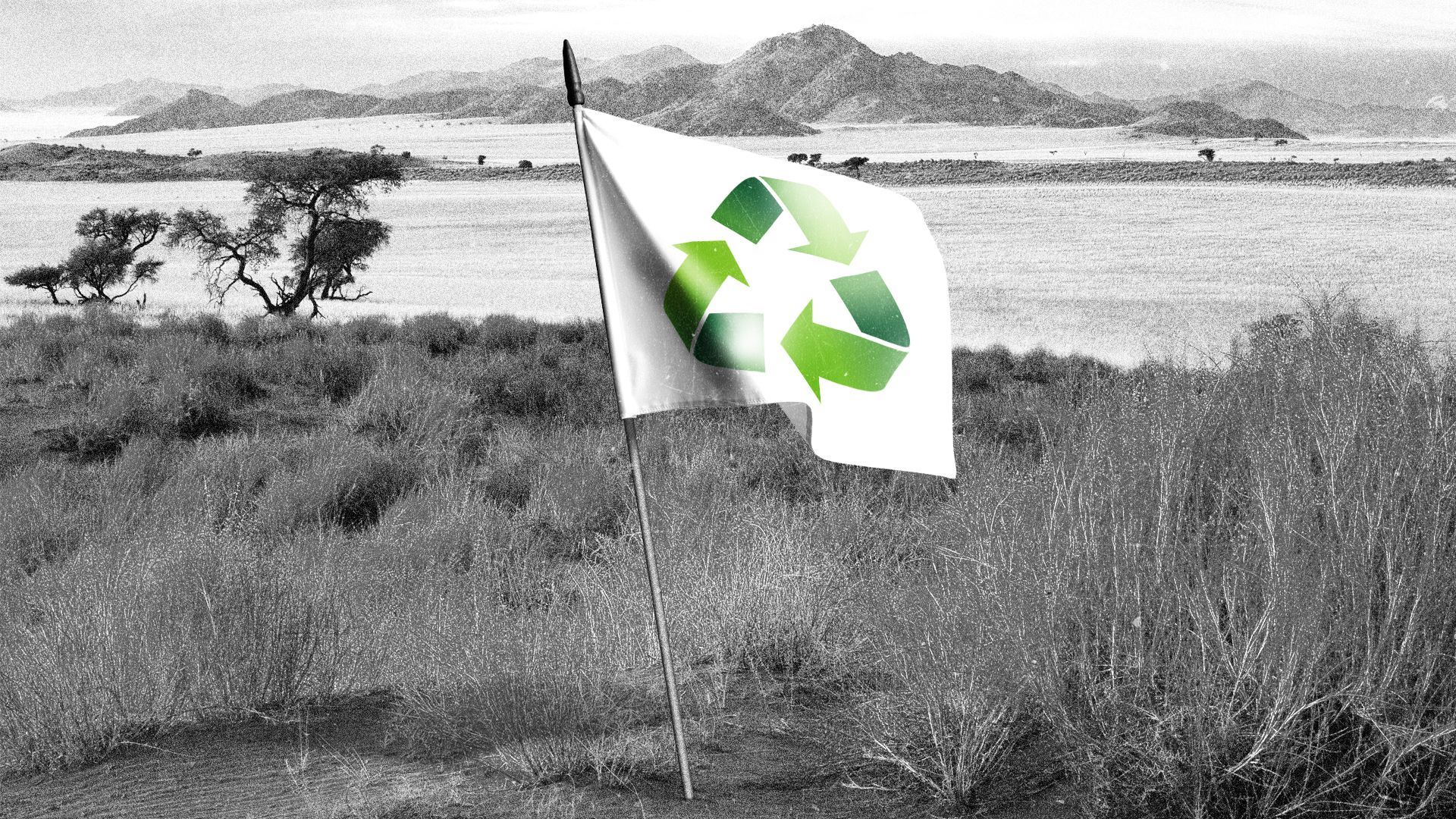 | | | Illustration: Sarah Grillo/Axios | | | | Averting the worst effects of climate change will eventually require the entire world to get off carbon, but some critics allege richer countries are trying to halt fossil fuels in poorer countries while continuing to drill at home, Axios Future correspondent Bryan Walsh writes. Why it matters: New policies that aim to restrict fossil fuel development in poorer countries in the name of climate change are on a collision course with those nations' need for energy-fueled growth and development. What's happening: At the United Nations climate conference earlier this year, the U.S., U.K. and other countries promised to end international financing for fossil fuel development. The catch: To some critics, however, the promise smacked of "green colonialism," as rich nations preemptively cut off desperately poor countries from the cheap fossil fuels that helped make them rich in the first place. - In effect, they seem to be exporting the hard political choices around climate change away from their own citizens — and voters — to those who can least afford it.
Read the rest. |     | | | | | | 7. Stories we're watching | 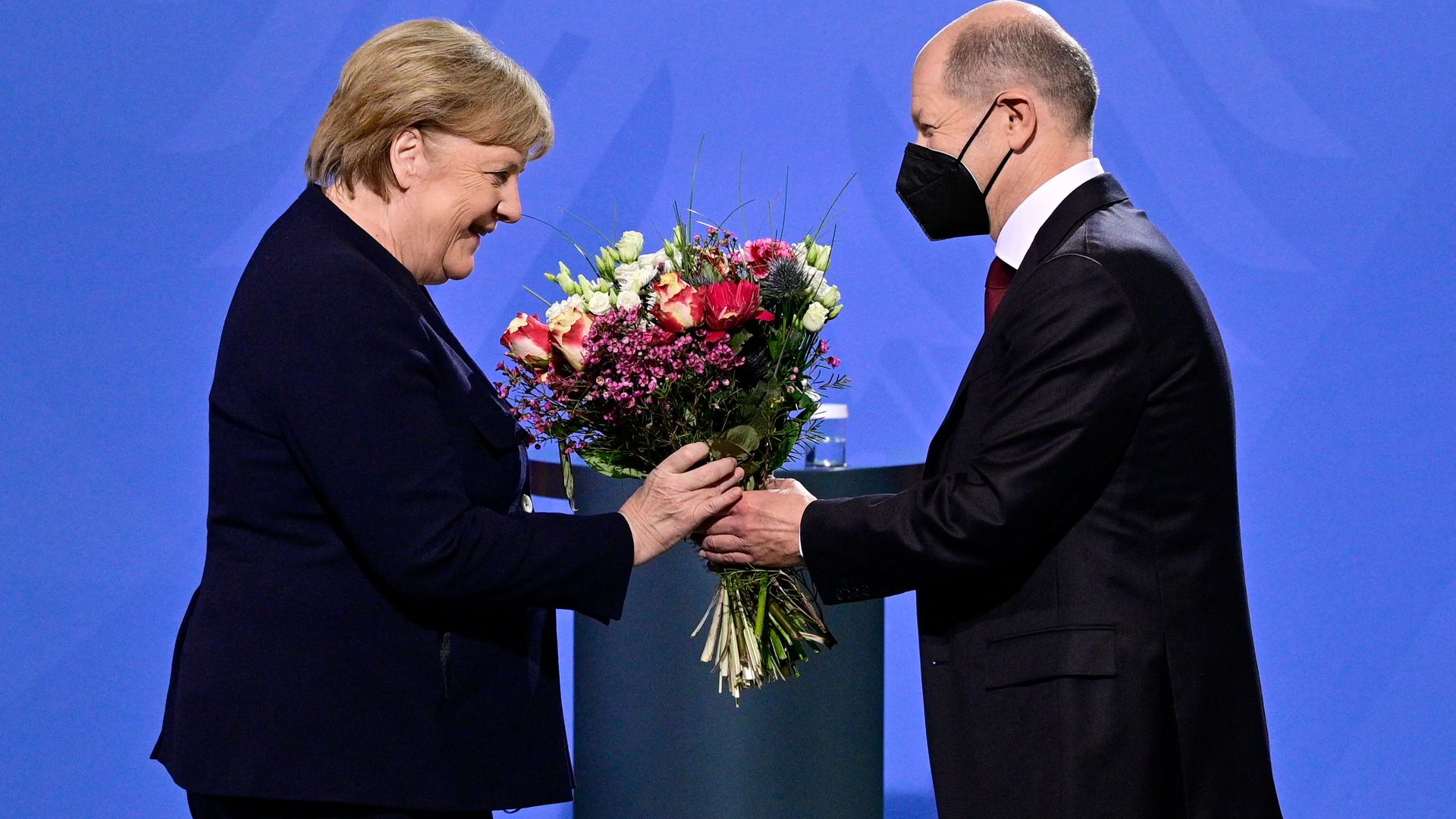 | | | End of an era, in Germany. Photo: John MacDougall/AFP via Getty | | | - Diplomatic boycott grows for Beijing Olympics
- Congress pushes Biden on Xinjiang forced labor bill
- Olaf Scholz replaces Merkel
- Iran news: UAE moves to reconcile; Now or never for nuke talks.
- Italy fines Amazon for antitrust violation
- 293 journalists in jail
- Remembering the massacre at El Mozote
Quoted: "There is a general exemption for singing." — A Downing Street spokesperson explains a policy that means you can take off your mask in church or even in the supermarket, but only if you're singing. |     | | | | | | A message from Mizzen+Main | | The lightweight shirt that lets you skip the dry cleaner | | |  | | | | Mizzen+Main combines the comfortable flexibility of athletic wear with the style and fit of a custom dress shirt. Key numbers: With more than 30,000 five-star reviews, Mizzen+Main is helping people get excited about wearing dress shirts again. Get $35 off on your order of $125 or more. | | | | Answer: Rotterdam, Netherlands. |  | Bring the strength of Smart Brevity® to your team — more effective communications, powered by Axios HQ. | | | | | | Axios thanks our partners for supporting our newsletters. If you're interested in advertising, learn more here.
Sponsorship has no influence on editorial content. Axios, 3100 Clarendon Blvd, Suite 1300, Arlington VA 22201 | | | You received this email because you signed up for newsletters from Axios.
Change your preferences or unsubscribe here. | | | Was this email forwarded to you?
Sign up now to get Axios in your inbox. | | | | Follow Axios on social media:    | | | | | |






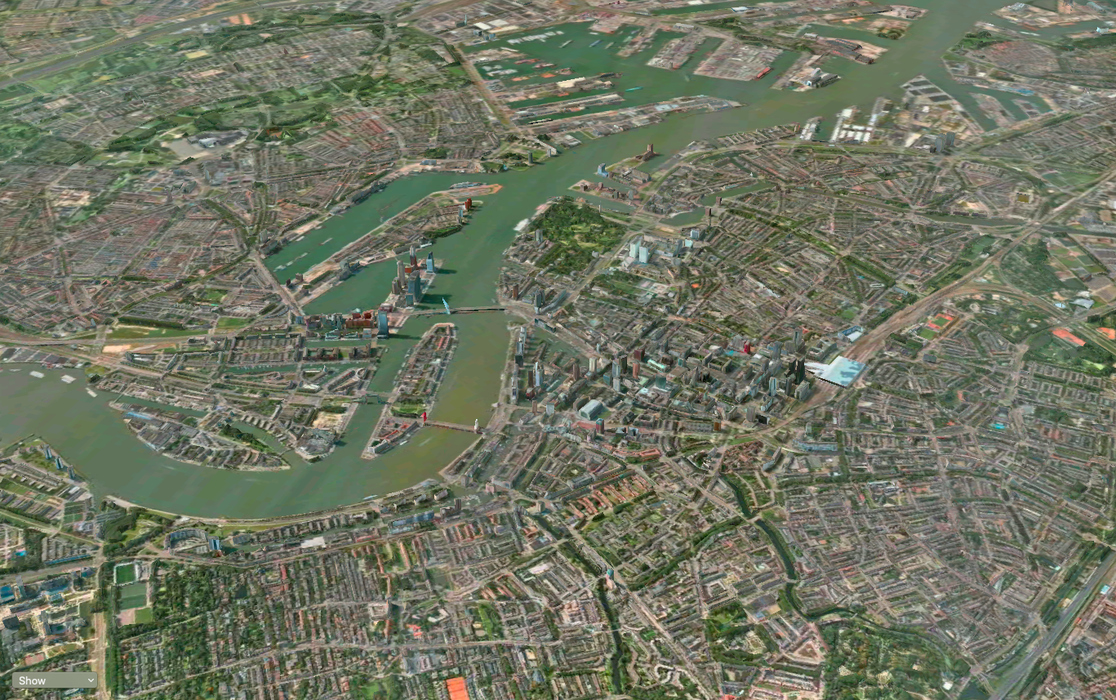





No comments:
Post a Comment